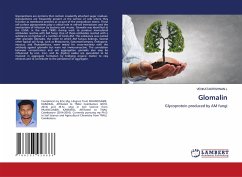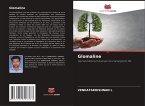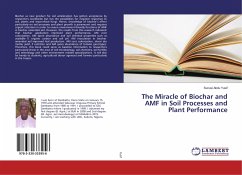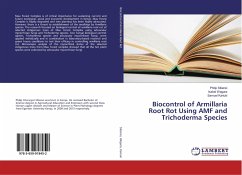Glycoproteins are proteins that contain covalently attached sugar residues. Glycoproteins are frequently present at the surface of cells where they function as membrane proteins or as part of the extracellular matrix. These cell surface glycoproteins play a critical role in cell-cell interactions and the mechanisms of infection by bacteria and viruses. Glomalin was identified at the USDA, in the early 1990's during work to produce monoclonal antibodies reactive with AM fungi. One of these antibodies reacted with a substance on hyphae of a number of kinds AM. This substance was named after glomalin Glomales, the order to which AM fungus belongs. Several other typical soil fungi, such as Rhizoctonia, Gaeumannomyces, Endogone, mucous, and Phytophthora, were tested for cross-reactivity with the antibody against glomalin but were not immunoreactive. The correlation between concentration and soil aggregation glomalin also may be influenced by iron. Iron- and Al- (Hydra) oxides are speculated to be involved in aggregate formation by bridging organic matter to clay minerals and to contribute to the persistence of aggregate.
Bitte wählen Sie Ihr Anliegen aus.
Rechnungen
Retourenschein anfordern
Bestellstatus
Storno








